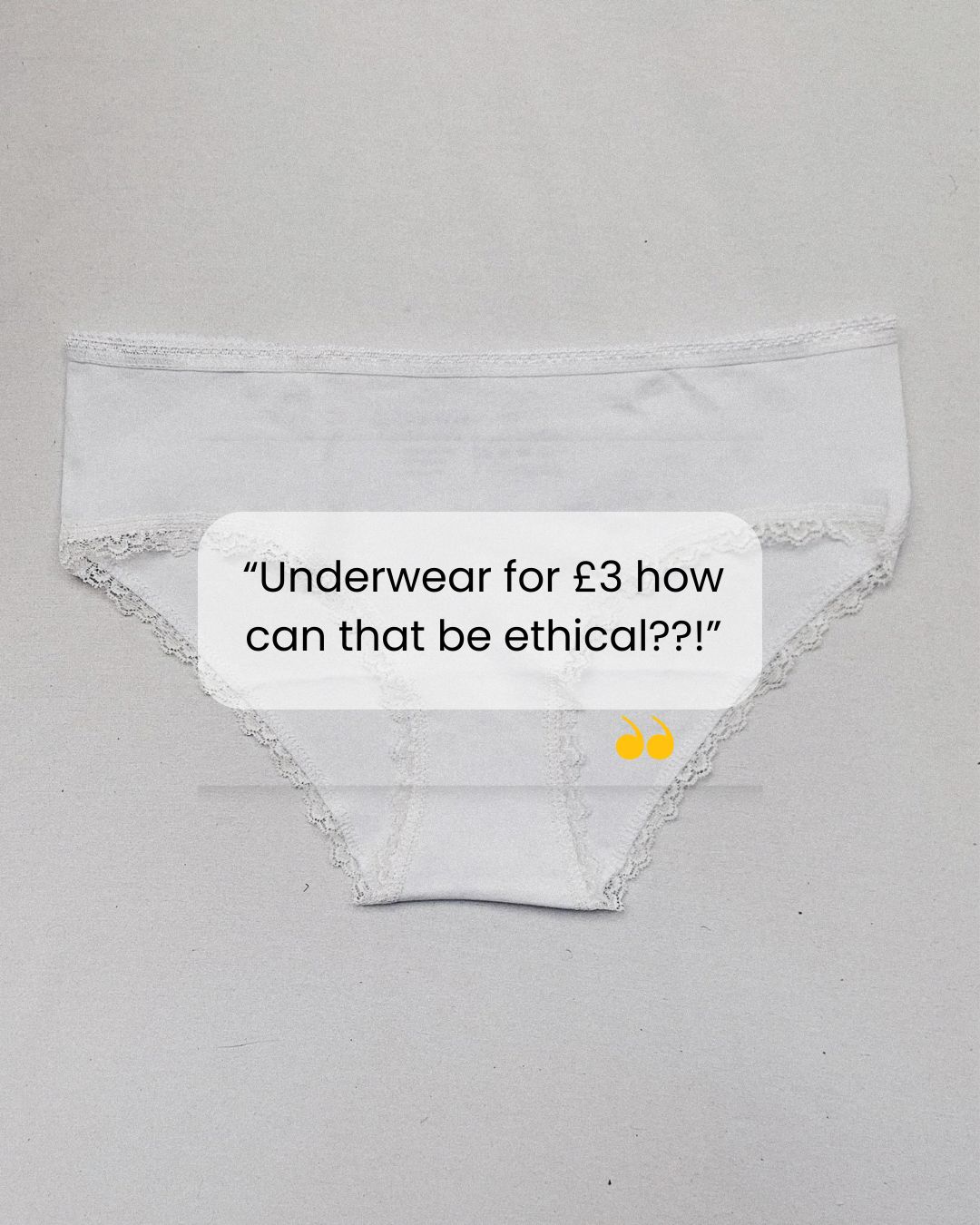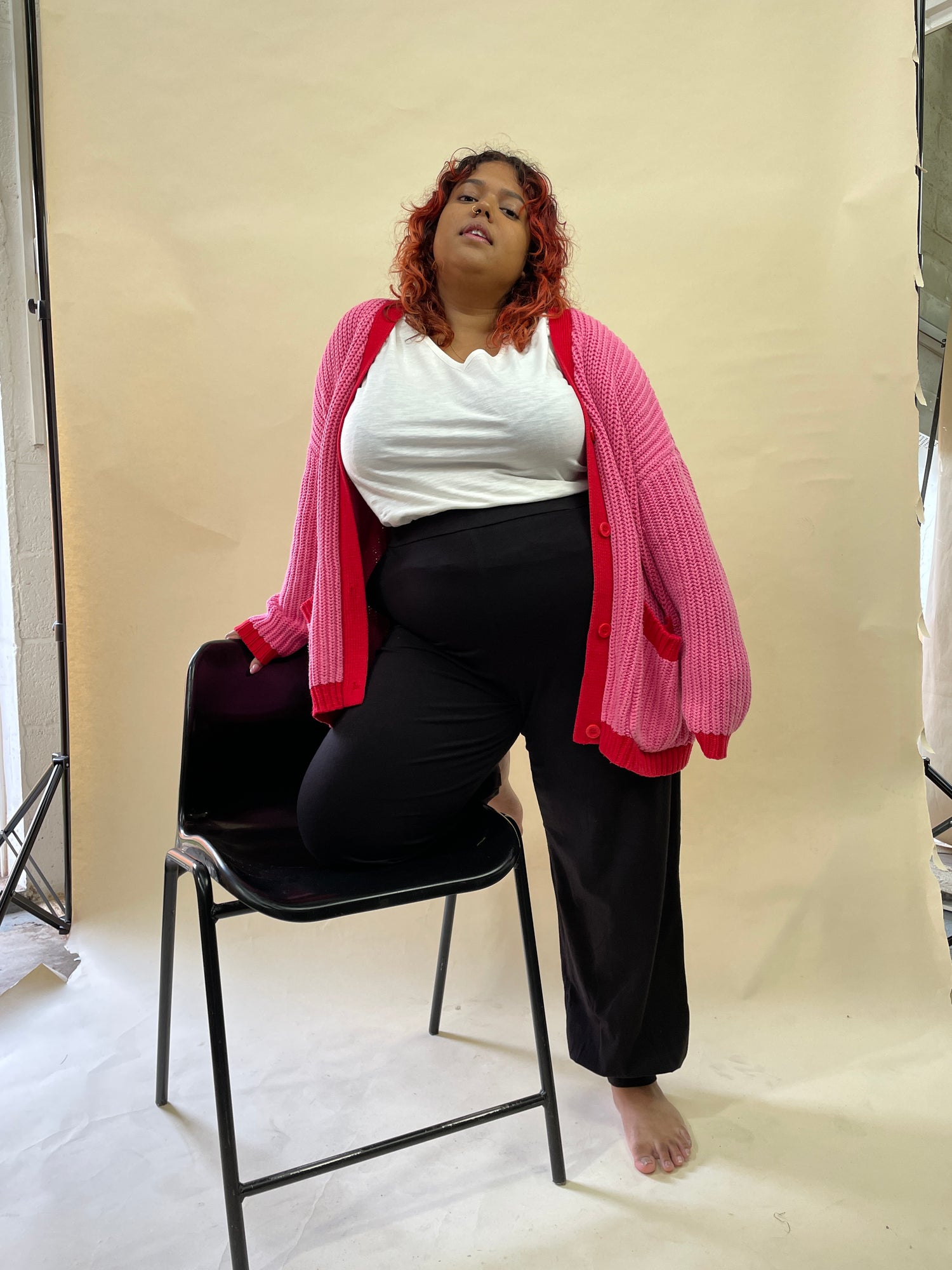Sancho’s is the home of sustainable fashion and ethical lifestyle products. Our Black woman owned business is based in Exeter, UK where we believe in doing better, providing sustainable and affordable clothing options. Through activism and spreading awareness, we are working towards a kinder world. Shop our transparent pricing collection here, our Organic Cotton Bestsellers here and read more about us here
How modern slavery exists in the UK and the effects it has had in the fight against Covid-19
As Leicester enters the UK’s first local lockdown, restrictions have been tightened whilst the rest of the country relaxes. Serving as the textile hub of the UK, it has been widely reported that sweatshop-like garment factories in Leicester have been a catalyst for the surge in cases. Boohoo accounts for 76% of orders in Leicester and we want to guide you through the scandal.
The Issue with Fast Fashion
In 2017, the fashion industry was worth £32 billionto the UK economy and by 2030, it is expected the global apparel consumption is projected to rise by 63%.According to the UN, the equivalent of almost 3 new planetswould be required to provide the natural resources needed to sustain current lifestyles given the rapid population growth of this century. Not only does fast fashion promote overconsumption, landfill wasteand high levels of pollution, but it is disgustingly unethical too. There is a race to the bottom in terms of wages and health and safety, and the fast fashion industry is plagued with modern slavery. The Fixing Fashion Reportby the EACfound that of the 71 leading fashion retailers in the UK, 77% believed there was a strong chance that modern slavery was being used at some point in their supply chain. However, because demand is so strong for cheap clothes to be produced at rapid speeds, companies show little sign of changing their processes.
TheRana Plaza factory collapse of 2013 highlighted the damaging effects of fast-fashion and sweatshops in Bangladesh. But, what the general public are now realising is that this is not just a distant issue, it is happening right here in the UK and the government have known about it for years.
Factories in Leicester
Leicester is home to 700 factories which employ 10,000 garment workers, making it the most concentrated textile manufacturing hub in the UK. In a study done by the University of Leicester, it was found that the majority of workers were paid below national minimum wage, don’t have contracts and face intense work practices. The question has been asked, how can this happen in the UK where we have a minimum wage and regulations that are supposed to prevent worker exploitation? Well, it is a combination of brands like Boohoo, pitting manufacturers against each other to lower prices, manufacturers paying their workers per garment produced and the government turning a blind eye.
The Interim Report on the Sustainability of the Fashion Industry directly called out Boohoo for creating a ‘cattle market’ of suppliers. Each manufacturer comes to their weekly meeting in Manchester and the person with the lowest price per garment is given the order. The intense competition drives prices down to a completely unrealistic standard. Boohoo work with 76% of Leicester factories, making them the largest contributor to the appalling working conditions that so many have to endure. Boohoo founder Carol Kane has also admitted that there is not a union for Boohoo workers, meaning any injustices are easily swept under the carpet, and basic ethical practices are rarely adhered to.
These absurdly low prices mean that Boohoo can offer dresses for £5, which is, according to Journalist Sarah O’Connor a really top hourly rate in Leicester garment factories. Most are paid around £3.50. Shocking, considering that the UK minimum wage for over 25s is £8.72 as of April 2020. The factories work around this to offer low prices to Boohoo by paying per garment rather than per hour. So, a worker may be paid £3 per dress made, but that could take a whole hour, resulting in an hourly rate far below minimum wage.
If that wasn’t bad enough, the UK government have known about this for years, published many reports on it and still, no action was taken. This is symptomatic of a wider problem of prioritising the economy over social and environmental wellbeing. In 2015 the UK government signed the UN’s Sustainable Development Goals (SDGs), which includes SDG 12: a commitment to ensuring sustainable consumption and production patterns. It would seem that the government are falling incredibly short.
How these Sweatshops Contributed to Leicester’s Lockdown
At the end of June, Leicester’s COVID-19 infection rates were three times higherthan the next highest city. Schools, shops and businesses have been closed in a hark back to the initial country-wide lockdown and the city has come to a standstill. One of the main reasons for this surge in cases is due to Leicester’s problem with sweatshops. Labour Behind the Labelreported that some garment factories stayed open as normal through the coronavirus crisis and ordered workers to continue to report to work even if they were sick. There was no social distancing. Some factories closed but did not offer furloughs, forcing garment workers to head to other garment factories to earn anything. This meant that the virus could spread rapidly, with very few obstacles.
Boohoo have now opened an independent reviewof its UK supply chain. This comes after Next and Asos dropped the brand.
Our fight here at Sancho’s is to change the culture surrounding consumption of fashion. Fast fashion for too long has dominated the industry and is harrowingly damaging to both people’s lives and the environment. There needs to be a shift to sustainable and ethical practice in the fashion industry and a huge move towards slow fashion. Big brands like Boohoo and its sister brands Pretty Little Thing and Nasty Gal must be held accountable for their actions and become more transparent. The government also need to enforce the legislation surrounding workers’ rights, or else injustices like those occurring in Leicester will continue to happen.
Buy less, buy better.
Written by Alice Smith
Note from the editor – in light of this tragedy Boohoo have not apologised for their blatant unethical treatment of their workers but called them “false allegations” and that “we are committed to doing everything in our power to rebuild the reputation of the textile manufacturing industry in Leicester. We want to ensure that the actions of a few do not continue to undermine the excellent work of many suppliers in the area, who succeed in providing good jobs and good working conditions." Deflecting the blame from the (boohoo) business owners onto the suppliers themselves who are wrong, not them. A report from The Financial Times has reported Boohoo’s shares price has fallen by a third since the investigation has come into the press – emphasising their worry about the effect this will have on consumer habits. - Olivia Riley



